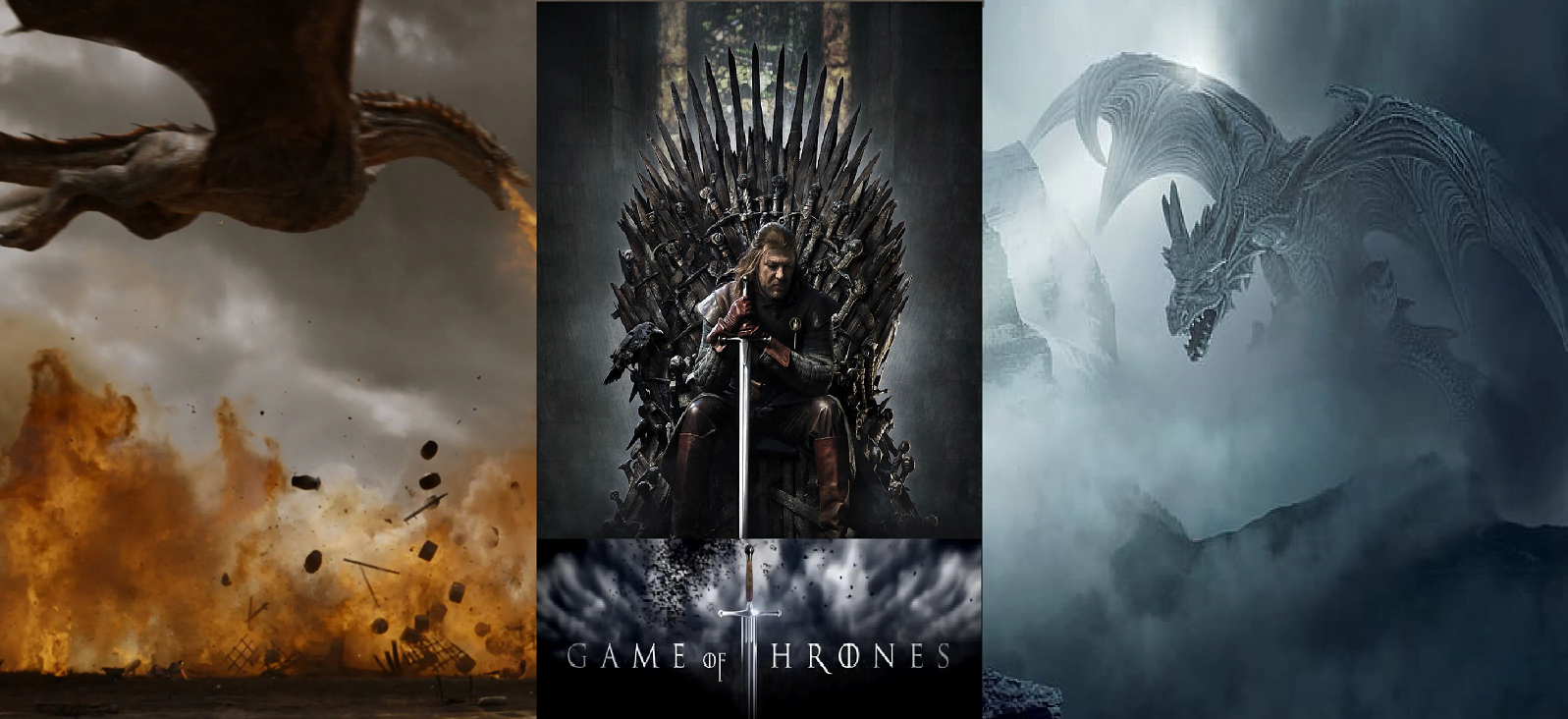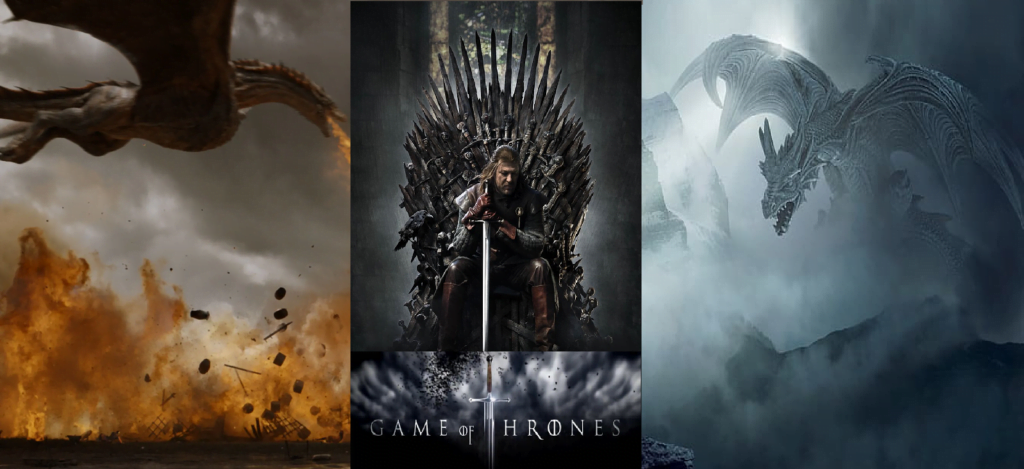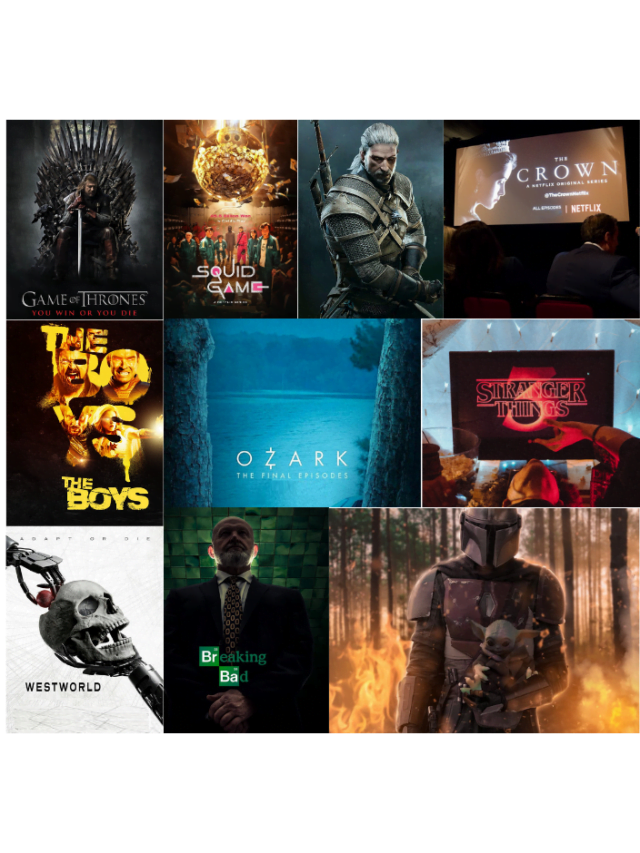Game of Thrones: A Brief Overview


Game of Thrones: A Fantasy Epic of Dynastic Struggles
In the land of Westeros and Essos, a tale of power, betrayal, and dragons unfolds. Welcome to the world of Game of Thrones, where the battle for the Iron Throne is more than just a game; it’s a ruthless and intricate saga of dynastic struggles.
A World Born from Novels
Game of Thrones, a masterpiece of modern television, was brought to life by creators David Benioff and D. B. Weiss for HBO. It found its roots in the richly detailed fantasy novels of George R. R. Martin, known collectively as “A Song of Ice and Fire,” with the first installment aptly titled “A Game of Thrones.” The television series, spanning eight seasons, took viewers on a mesmerizing journey through the continents of Westeros and Essos.
Dynastic Struggles Unveiled
At its heart, Game of Thrones is a narrative tapestry woven from the violent dynastic struggles among Westeros’ noble families. Their ultimate prize? The coveted Iron Throne. A throne that has seen kings rise and fall, bloodlines extinguished, and alliances shattered. From the very first episode on April 17, 2011, to the grand conclusion on May 19, 2019, Game of Thrones became an unprecedented cultural phenomenon, captivating audiences worldwide with its blend of complex characters, intricate plotlines, and awe-inspiring visuals.
The Crown Jewel of Television
Game of Thrones swiftly asserted itself as both a critical darling and a commercial powerhouse. Its ascent to the upper echelons of television history was undeniable. This sprawling epic, comprising 73 episodes, amassed a staggering 59 Primetime Emmy Awards, setting a record for any drama series. Its accolades mirrored the admiration it garnered for its diverse cast and its unflinching portrayal of the harsh realities of violence and sexuality within its world.
However, like the noble houses it chronicled, the show faced its own share of criticism. Some viewers expressed frustration with its pacing, while others questioned the narrative choices that relied on shock value. Nevertheless, these debates only served to fuel the fiery passion of its fanbase.
A World of Ice and Fire
At the heart of Game of Thrones lies a world characterized by extremes—summers that can span decades and winters that can freeze the heartiest of souls for years. The story unfurls amidst the chaos of the War of the Five Kings, triggered by the untimely death of King Robert Baratheon. The key players in this grand narrative are a diverse and complex ensemble.
Daenerys Targaryen, an exiled princess with a dream of reclaiming the Iron Throne, embodies resilience and strength. Jon Snow, initially perceived as a lowly bastard, is revealed to have a lineage that shakes the very foundations of Westeros. Cersei Lannister, a calculating and power-hungry queen, seeks to maintain her grasp on the Seven Kingdoms.
Themes that Resonate
Beyond its intricate plot and remarkable characters, Game of Thrones delves into timeless themes that resonate deeply with its audience.
- War: The series is an unflinching exploration of the horrors and costs of war, both on the battlefield and in the lives of those it touches. The War of the Five Kings is but one of many conflicts that paint a harrowing portrait of the human cost of ambition.
- Power: The insatiable lust for power is a driving force that propels the characters into perilous situations. Game of Thrones elucidates the corrupting influence that power can have on even the noblest of souls.
- Family: Familial bonds, both nurturing and toxic, play a central role. Characters are often torn between loyalty to their family and their personal convictions, leading to moral dilemmas of epic proportions.
- Love: Amidst the chaos and carnage, love emerges as a powerful force. The characters grapple with their affections, sometimes choosing love over duty, and at other times, sacrificing love for the sake of power or family.
- Betrayal: In the game of thrones, betrayal is a common currency. Characters betray friends, allies, and even their own principles to secure their positions. It’s a ruthless world where trust is a scarce and fragile commodity.
A Cultural Phenomenon
Game of Thrones transcended the boundaries of television to become a cultural touchstone. Iconic characters like Tyrion Lannister and Daenerys Targaryen, catchphrases like “Winter is Coming,” and unforgettable moments like the Red Wedding have permeated everyday conversations, solidifying their place in the pantheon of pop culture.
The show’s influence reached far beyond the confines of the screen. It inspired countless imitators and spin-offs, including prequels and adaptations. The expansive and meticulously crafted world of Westeros continues to captivate the imagination of fans, fostering a community that thrives through fan fiction, fan conventions, and discussions that dissect every nuance of the series.
A Legacy That Endures
Though the series has ended, its legacy endures, akin to the lore of Westeros itself. It remains a testament to the power of storytelling, demonstrating how a fictional world can resonate deeply with viewers and ignite conversations about power, politics, and human nature. Game of Thrones will live on through the memories of its fans, the rewatch marathons, and the generations of new viewers who will embark on the epic journey through Westeros.
In conclusion, Game of Thrones is more than just a television show; it’s an epic saga that has left an indelible mark on the cultural landscape. Through its intricate characters, richly developed world, and exploration of timeless themes, it invites viewers to ponder the complexities of power, love, and loyalty in a world where the stakes are as high as the Iron Throne itself. As we bid farewell to Westeros, we are left with a treasure trove of unforgettable moments and a legacy that will endure for generations to come.







